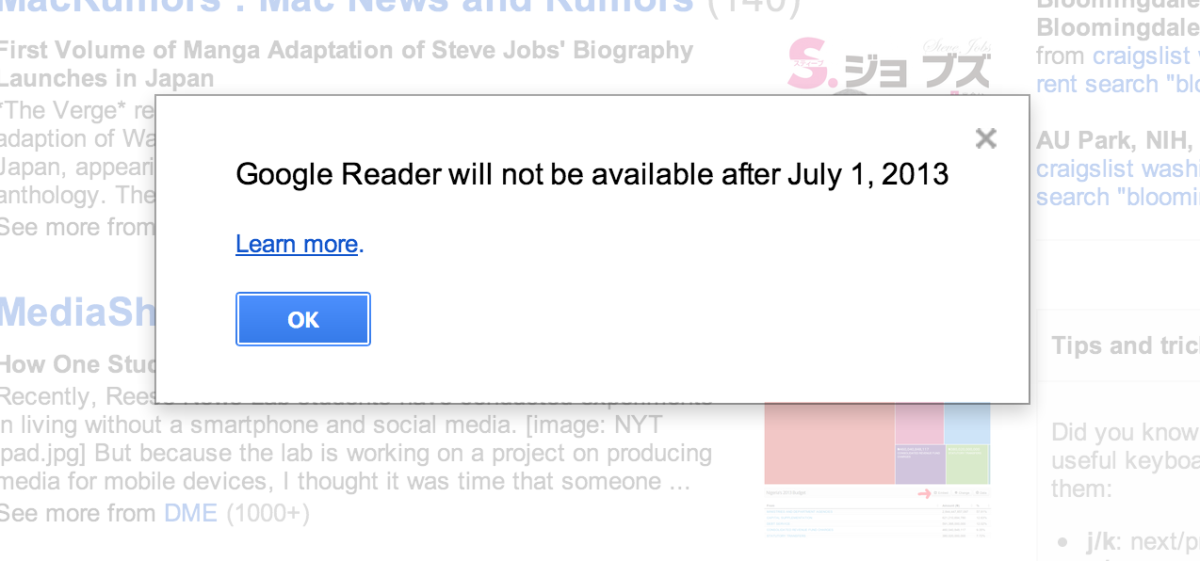Google Reader being shuttered for privacy-compliance concerns, report says

- Share via
Google said earlier this month it would close its Reader service because of low usage, but a report says the company also killed the RSS platform because it did not want to commit a full staff to it to ensure the service complied with privacy laws.
After having to agree to multi-million dollar settlements with government agencies, Google Chief Executive Larry Page has been adding lawyers, policy experts and others to each of its teams who can deal with compliance and privacy issues, a report by AllThingsD says.
But that was something Google was unwilling to do for Reader, which didn’t even have a product manager or a full-time engineer working on it, the report says.
When Google announced it would stop its Reader service on July 1, the move was largely seen as part of its spring cleaning that it does every so often in order to get rid of some services and features that haven’t caught on.
QUIZ: How much do you know about Google?
Google Reader’s demise hasn’t been well received by its passionate users. Google Reader users have signed several petitions hoping to convince Google to continue the service, which is used to aggregate content from numerous RSS feeds. One of the petitions has gained more than 150,000 signatures.
But so far Google hasn’t budged or showed signs that it might change its mind. So while users count down the days until July 1, many of them have already flocked to other services that could replace Google Reader.
Feedly, for example, said it picked up 500,000 users from Reader after Google announced its impending closure. Flipboard, Newsblur and the Old Reader were other RSS services mentioned as replacements by users after Google announced it would close Reader.
ALSO:
Getting real estate data is a snap with Homesnap app
Is the smartwatch the next big thing? LG also looks at wrist device
Apple security flaw discovered; two-step verification recommended
More to Read
Inside the business of entertainment
The Wide Shot brings you news, analysis and insights on everything from streaming wars to production — and what it all means for the future.
You may occasionally receive promotional content from the Los Angeles Times.











